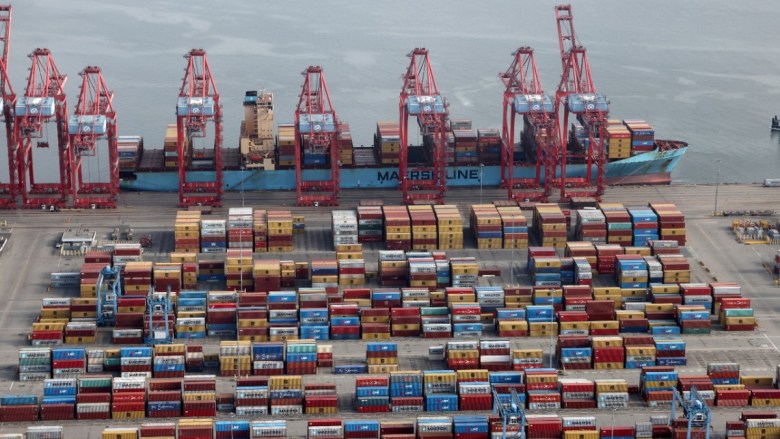
Due to a rebound cargo traffic through ports and strong income growth, California’s economy should continue to outpace that of the United States as a whole over the next three years, according to a UCLA forecast released Wednesday.
“The risks to the forecast are political, geopolitical and the potential for interest rates to still disrupt the current expansion on the downside and increased international immigration and accelerated onshoring of technical manufacturing on the upside,” UCLA Anderson Forecast Director Jerry Nickelsburg wrote in a quarterly report on the state’s economy.
According to Nickelsburg, the state’s gross domestic product rose faster than the United States and all but three large states — Washington, Florida and Texas — in the first three months of 2023, the latest data available. He noted that Florida and Texas growth was due primarily to more people moving to those states, boosting the housing markets.
“With the loss in population in California, per capita income growth continues to rival ‘successful’ large states across the country,” he wrote. “While there are still challenges ahead, notably state and local government finance, homelessness and out-migration, the forces driving California’s economy remain robust.”
Nickelsburg also noted a rebound in imports at the state’s ports, aided in part by resolution of a long-standing labor dispute with dock workers. The state’s major airports have largely returned to “normal times” in terms of cargo, although air cargo at Los Angeles International Airport is still lagging, “and there is no clear neutral or positive trend.”
The forecast predicts an average unemployment rate of 4.7% for the first quarter of the year, and averages of 4.6% for 2024 overall, 3.8% for 2025 and 3.9% for 2026. Employment growth over those years is predicted at -0.6%, 2.1% and 1.5%, respectively. Real personal income is expected to grow at 2%, 2.9% and 2.7% during that span.
“In spite of the higher interest rates, the continued demand for a limited housing stock coupled with state policies inducing new homebuilding should result in the beginning of a recovery this year followed by solid growth in new home production thereafter,” Nickelsburg wrote. “Our expectation is for 123,000 net new units to be permitted in 2024 and permitted new units to grow to 159,500 by the end of 2026. Needless to say, this level of home building means that the prospect of the private sector building out of the housing affordability problem over the next three years is nil.”
On the national front, Nickelsburg wrote that continued high interest rates will keep restraining U.S. economic growth this year, accompanied by inflation rates that remain elevated thanks to residential rents, automotive repair costs and health insurance costs.
The national economic picture also faces a variety of potentially volatile factors, including geopolitical conditions, a lingering threat of a government shutdown and possible major policy changes following the presidential election.
“These risks are substantial and bear watching as they could well drive the economy off the current growth path that would return the U.S. economy to a trend of 2.5% growth,” he wrote. “The upside of the forecast is productivity growth due to new technology that drives higher wages and higher GDP.”
